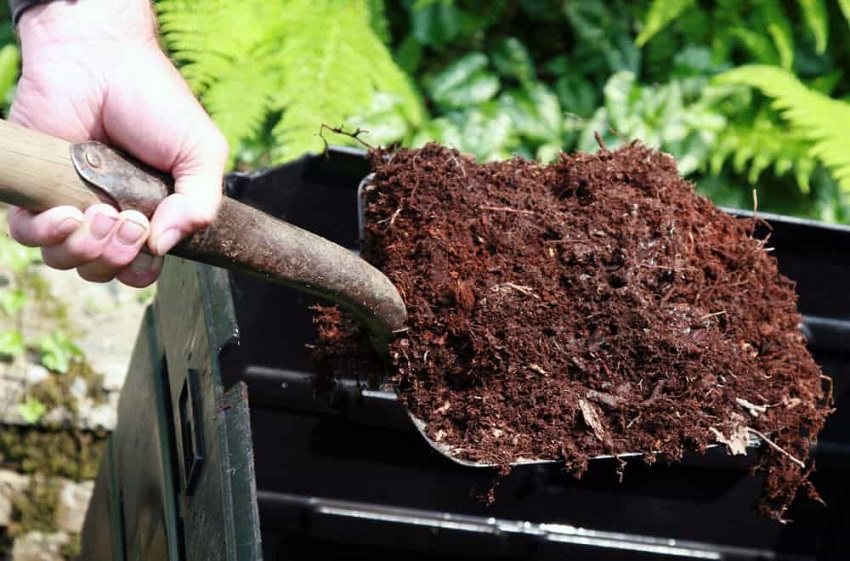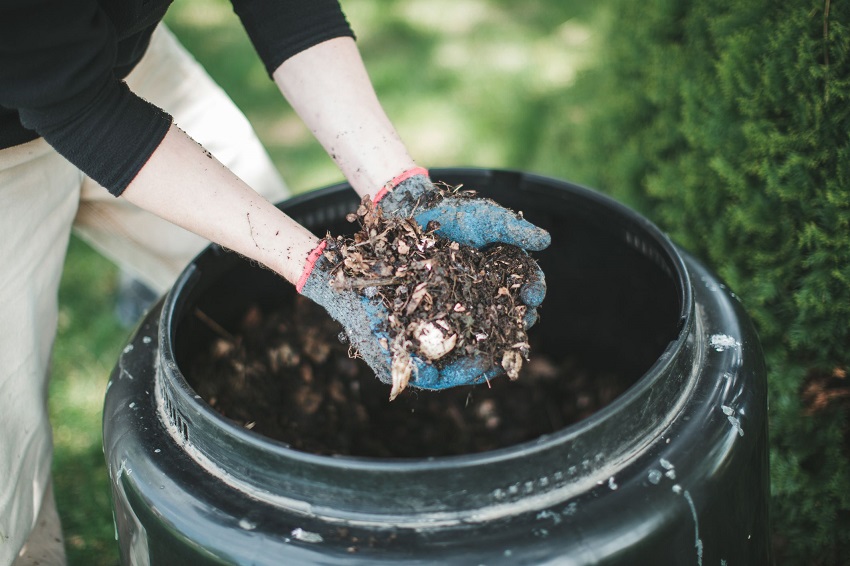
20 Jul What is the Best Compost for Fruit Trees?
Do you want your fruit trees to flourish and bear healthy, abundant fruits? One of the key factors in achieving this is providing them with the right compost. Choosing the best compost for fruit trees can significantly enhance their growth, improve soil fertility, and increase overall fruit production. In this article, we will explore different types of compost suitable for fruit trees, discuss their benefits, and provide you with some valuable recommendations. The article is published by https://shahraradecor.com/
Understanding the Importance of Compost for Fruit Trees
Before we delve into the specifics, let’s first understand why compost is crucial for the health and productivity of fruit trees. Compost serves as a nutrient-rich organic fertilizer that improves soil structure, enhances moisture retention, promotes beneficial microbial activity, and supplies essential minerals and nutrients to the trees. By adding compost to the soil, you create a thriving environment that supports the growth and development of fruit trees.
Traditional Compost
When it comes to planting fruit trees, traditional compost can be a helpful tool for your garden. Tips for planting fruit trees include enriching the soil with organic matter, improving its water-holding capacity, and enhancing nutrient availability. Traditional compost, also known as garden compost or homemade compost, is created by decomposing a mixture of organic materials such as kitchen scraps, yard waste, leaves, and grass clippings. It promotes the growth of beneficial soil microorganisms, which further contributes to the overall health of the trees. With the use of traditional compost, your fruit trees can thrive and produce a bountiful harvest.
Vermicompost
Vermicompost is a nutrient-rich organic fertilizer produced by earthworms through the digestion of organic matter. This type of compost is highly beneficial for fruit trees due to its high nutrient content and microbial activity. Vermicompost improves soil structure, enhances nutrient absorption, and stimulates root development. It also increases the population of beneficial soil organisms, creating a balanced ecosystem around the tree’s root zone.
Mushroom Compost
Mushroom compost, also referred to as mushroom soil, is a byproduct of the mushroom cultivation process. It is rich in organic matter and contains a blend of various ingredients, including straw, poultry manure, gypsum, and peat moss. Mushroom compost is well-suited for fruit trees as it improves soil structure, increases water retention, and provides a slow release of nutrients over time. However, it’s important to note that some varieties of mushroom compost may have high salt levels, so it’s advisable to check the composition before using it.
Leaf Mold
Leaf mold is the result of decomposed leaves, usually collected from deciduous trees. It is an excellent compost option for fruit trees due to its high carbon content and ability to retain moisture. Leaf mold enhances soil aeration, promotes nutrient availability, and helps regulate soil temperature. By incorporating leaf mold into the soil, you create a favorable environment for the root system of fruit trees to thrive.
Green Manure
Green manure refers to the practice of growing specific crops, such as legumes or grasses, and then incorporating them into the soil as a source of organic matter. This composting method helps improve soil fertility, suppress weed growth, and prevent erosion. Green manure crops like clover and vetch fix nitrogen in the soil, which can be beneficial for fruit trees. By enriching the soil with green manure, you provide a long-term source of nutrients that supports the health and productivity of your fruit trees.
Compost Tea
Compost tea is a liquid fertilizer made by steeping compost in water. It serves as a nutrient-rich foliar spray or soil drench that can be applied directly to the fruit trees. Compost tea enhances nutrient uptake, improves soil biology, and increases disease resistance in fruit trees. It is an effective way to provide a concentrated dose of beneficial microorganisms and nutrients to support the overall health of the trees.
Commercial Compost Blends
In addition to the various types of compost that can be made at home, there are also commercially available compost blends specifically formulated for fruit trees. These blends are carefully crafted to provide the optimal balance of nutrients, organic matter, and microbial activity required for fruit tree growth. When choosing a commercial compost, look for reputable brands that use high-quality ingredients and have positive reviews from fellow gardeners and orchardists.
Best Practices for Using Compost on Fruit Trees
To ensure the best results when using compost for your fruit trees, consider the following best practices:
- Apply compost annually: Add compost to the soil around the base of the tree once a year. This will replenish nutrients and organic matter, supporting the tree’s growth.
- Mulch with compost: Spread a layer of compost as mulch around the base of the tree. This will help conserve moisture, suppress weeds, and gradually release nutrients into the soil.
- Avoid piling compost against the trunk: Keep the compost a few inches away from the trunk to prevent rot and other potential issues.
- Water thoroughly after application: After adding compost, water the area thoroughly to allow the nutrients to penetrate the soil and reach the tree’s root system.
Conclusion
Choosing the best compost for your fruit trees is a vital step in ensuring their optimal health and productivity. Whether you opt for traditional compost, vermicompost, mushroom compost, leaf mold, green manure, compost tea, or commercial compost blends, each type offers unique benefits that can contribute to the overall well-being of your fruit trees. By incorporating compost into your orchard management practices, you provide essential nutrients, improve soil fertility, and create a thriving environment for your beloved fruit trees to flourish.
FAQs
- How often should I apply compost to my fruit trees?
It is recommended to apply compost to your fruit trees once a year, preferably during the dormant season.
- Can I use compost made from animal manure for fruit trees?
Yes, compost made from well-rotted animal manure can be used for fruit trees. However, ensure that the manure is fully decomposed to avoid the risk of burning the tree’s roots.
- Can I make my own compost at home?
Absolutely! Making your own compost at home is a cost-effective and sustainable way to provide nutrient-rich organic matter for your fruit trees.
- Can compost help control pests and diseases in fruit trees?
While compost itself does not directly control pests and diseases, it promotes a healthy and robust tree, making it more resilient to pest infestations and diseases.
- Are there any specific compost blends recommended for citrus fruit trees?
Certain commercial compost blends formulated for citrus fruit trees are available in the market. Look for blends that contain citrus-friendly nutrients and have positive user reviews.

Sorry, the comment form is closed at this time.